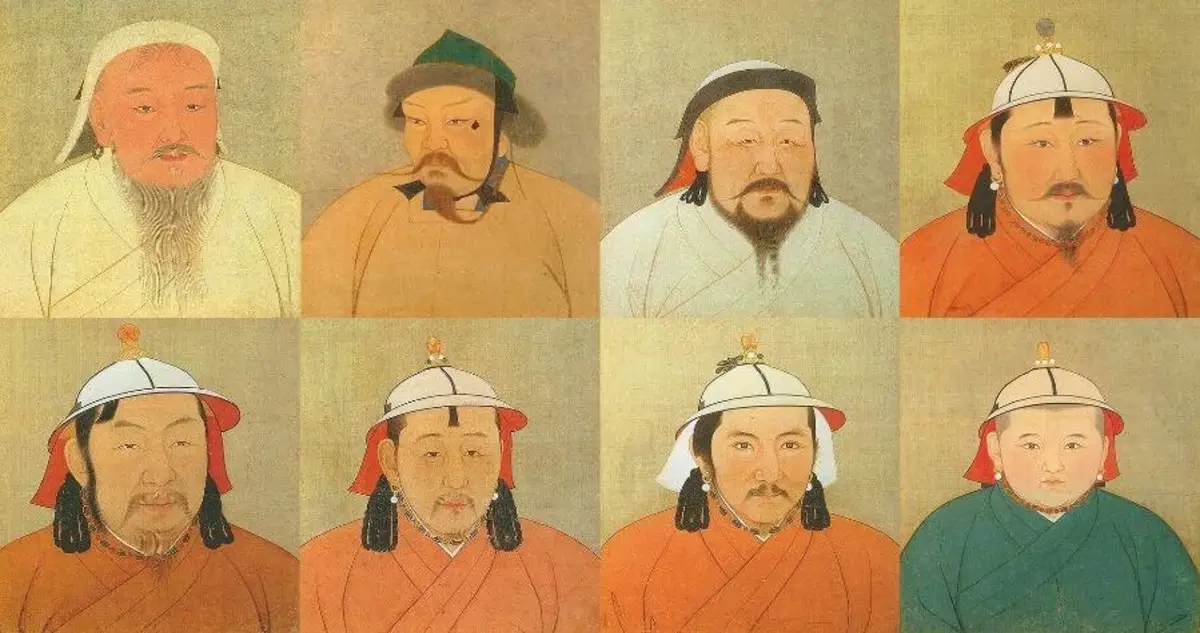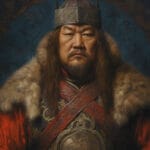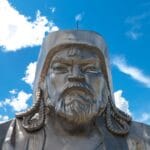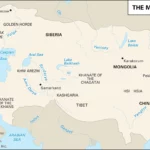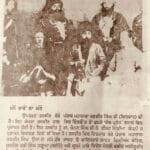Genghis Khan, the name alone evokes images of sweeping conquests and the vast Mongol Empire. His strategic brilliance on the battlefield is legendary, but his personal life, particularly the size of his family, remains a subject of much fascination and speculation. So, just how many children did this legendary conqueror father?
How Many Children Did Genghis Khan Father?
Historical records definitively attribute at least thirteen children to Genghis Khan. His primary wife, Börte, gave birth to nine of them, comprising four sons and five daughters. These four sons—Jochi, Chagatai, Ögedei, and Tolui—held significant status as his officially recognized heirs, destined to inherit and rule different parts of his vast empire.
This practice of formally recognizing only a select number of children was likely a strategic maneuver to ensure a smoother transition of power and mitigate potential conflicts over succession. However, while his other children, born to various wives and concubines, were not in the direct line of succession, they undoubtedly played a role in disseminating his genes.
And when we’re talking about someone as influential as Genghis Khan, the spread of those genes becomes a particularly intriguing point of study. In fact, a groundbreaking genetic study in 2003 made a startling estimation: approximately 16 million men alive today could be direct descendants of Genghis Khan. This incredible genetic impact is likely due to a confluence of factors, including his numerous wives and concubines, the expansive reach of the Mongol Empire, and the social structures that enabled the proliferation of his lineage.
How many children has Genghis Khan father?
While we can definitively say that Genghis Khan fathered at least thirteen children, the true number remains shrouded in the mists of time. Historical records from that era are not as comprehensive or reliable as modern documentation, making it difficult to ascertain the exact number of offspring sired by the great Khan. Some historians propose figures as high as 20 or even 40, but without concrete evidence, these remain speculative.
His primary wife, Börte, bore him four sons who were formally acknowledged and subsequently inherited portions of his sprawling empire. However, given the accepted practices of the time and his numerous wives and concubines, it is highly probable that Genghis Khan fathered many more children than official records reveal.
Adding another layer to this historical puzzle are the findings of genetic studies. Scientists have discovered that approximately 16 million men living today share a specific Y-chromosome—the one passed down directly from Genghis Khan. This astounding number underscores the profound and enduring legacy of this historical figure, extending far beyond his military exploits and into the very genetic makeup of a significant portion of the global population.
Did Genghis Khan have 500 wives?
The tales of Genghis Khan’s personal life often verge on the legendary, with whispers of a harem exceeding 500 wives, not to mention countless concubines. While historians cannot confirm these numbers with absolute certainty, the historical context of his reign provides some insight.
Genghis Khan was not simply a man seeking companionship; he was a shrewd leader forging a vast empire. In that era, marrying the daughters of rulers from conquered lands was a strategic maneuver akin to a modern-day peace treaty. These unions helped solidify his power, integrate diverse populations into his realm, and legitimize his rule among those he had conquered.
However, managing such a vast family extended far beyond political maneuvering. While Genghis Khan was engaged in military campaigns, his wives, especially his principal wife Börte, played pivotal roles in managing the affairs of his burgeoning empire.
This notion of Genghis Khan potentially having hundreds of wives and possibly thousands of descendants has spurred substantial research. Some scientists posit that as many as 1 in every 200 people alive today might be related to him. While tracing every family line back through the centuries is an impossible task, it is nonetheless a mind-boggling concept to consider.
How many has Genghis Khan DNA?
The reach of Genghis Khan‘s DNA is truly remarkable. It is estimated that approximately 1 in every 200 people on Earth—that’s roughly 16 million men—carry a segment of Genghis Khan’s genetic code. This makes him one of the most prolific “super fathers” in human history.
It’s important to note that Genghis Khan wasn’t the only historical figure to leave such a significant genetic mark. Researchers have identified ten other individuals throughout history whose lineages have had a lasting impact on present-day populations. Powerful figures, especially in the past, often had many children, and when those descendants also rose to positions of power and influence, their genes would naturally proliferate. It’s like a ripple effect through the gene pool.
Scientists can trace these ancient lineages by analyzing the Y-chromosome, a unique piece of DNA passed down from father to son. By studying variations in the Y-chromosome, they have uncovered eleven distinct lineages, including Genghis Khan’s, that originated in Asia thousands of years ago. This research offers a fascinating glimpse into the vast scope of human history and the interconnectedness of populations across time and continents.
Let’s break it down:
- Approximately 16 million men alive today are thought to be direct descendants of Genghis Khan. This equates to a staggering 0.5% of the global male population.
- Several factors contributed to his widespread genetic legacy, including his many wives and children, the expansion of the Mongol Empire through his military conquests, and social structures that permitted powerful men to have multiple partners and offspring.
- The Y-chromosome, acting as a genetic time capsule, has been instrumental in uncovering these ancestral connections and revealing the profound impact historical figures like Genghis Khan have had on the genetic makeup of modern populations.
How many children did Kublai Khan have?
Kublai Khan, the grandson of Genghis Khan and the founder of the Yuan dynasty in China, was known to have fathered a considerable number of children. While the exact figure remains unclear due to incomplete historical records, historians estimate that he had at least two dozen children from his numerous wives and concubines.
His eldest son, Zhenjin, was slated to inherit the throne. However, tragedy struck when Zhenjin died before his father, leaving the line of succession in question. Contrary to what one might expect, Kublai Khan’s successor wasn’t his next eldest son. After much internal maneuvering and political wrangling, it was Kublai Khan’s grandson, Temür Khan, who ascended to the throne. This turn of events highlights that even in societies with clearly defined hierarchies, succession wasn’t always straightforward.
The sheer number of children Kublai Khan fathered underscores several key aspects of the time period. First, it highlights the prevalence of polygyny—the practice of having multiple wives—which was common among the Mongol elite. Second, it speaks to the cultural value placed on having numerous children, particularly sons, who were viewed as symbols of power, prestige, and a continuing legacy.
While the precise number of Kublai Khan’s offspring may forever remain a mystery, his sprawling family tree undoubtedly left an enduring imprint on the Yuan dynasty and beyond.
Did Genghis Khan have 100 kids?
The stories surrounding Genghis Khan often take on mythical proportions, and the number of children he fathered is no exception. While it’s a popular notion that he may have had 100 children, it’s important to separate historical reality from hyperbole.
While historical records from that period are not as detailed as we might find today, most historians concur that 100 children is a significant exaggeration. A more realistic estimate falls somewhere between 20 and 40 children. This is still a considerable number, of course, and reflects the cultural norms and practices of the time.
Genghis Khan’s primary wife, Börte, gave birth to nine children, including the four sons who would later play pivotal roles in expanding and governing the Mongol Empire. However, as a powerful ruler who traversed vast stretches of Asia during his conquests, Genghis Khan took numerous wives and concubines, significantly increasing the likelihood of fathering many more children.
Scientific analysis of Genghis Khan’s DNA provides further insight into the scope of his progeny. Researchers estimate that approximately 16 million men alive today are his direct descendants, carrying his Y-chromosome.
So, while the exact number of Genghis Khan’s offspring remains an enigma, there is no doubt that he left an indelible mark on the world, not only through his empire building but also through his vast and enduring genetic legacy.
If you’re eager to explore this topic further, the study “The Genetic Legacy of Genghis Khan,” published in The American Journal of Human Genetics, is an excellent resource.
Did Genghis Khan have red hair?
Genghis Khan’s appearance, especially the claim that he had red hair, has sparked much curiosity and speculation. While definitive evidence is lacking, there are some intriguing clues.
One piece of the puzzle comes from the 14th-century Persian historian, Rashid al-Din. Writing approximately a century after Genghis Khan’s reign, al-Din described him as having reddish hair and striking green eyes. Of course, this account, coming well after the Khan’s death, cannot be taken as absolute truth. It does, however, provide a tantalizing glimpse into how he might have been perceived.
Fast forward to the present day, and scientists are using cutting-edge technology to unlock further secrets about Genghis Khan’s appearance. By analyzing the DNA of his descendants, they’ve discovered some interesting markers that suggest the potential for red hair existed within his family line. While this doesn’t definitively prove he had red hair, it adds another layer of intrigue to the mystery.
Determining his hair color with certainty is complicated by the fact that hair color is influenced by a complex interplay of genes. Genes controlling pigments like pheomelanin (responsible for red hair) and eumelanin (responsible for brown and black hair) combine in a multitude of ways, resulting in a vast spectrum of hair colors.
Furthermore, environmental factors and even hormonal changes can influence how these genes are expressed. Therefore, someone with the genetic potential for red hair might not actually exhibit that trait, depending on various influences.
The Bottom Line
So, the question of whether Genghis Khan truly had red hair remains unanswered. Historical accounts hint at the possibility, and genetic studies offer intriguing, albeit inconclusive, clues. However, the complexities of hair color, genetic expression, and the passage of time mean we may never know for sure.
Did Genghis Khan have a son?
Genghis Khan, the renowned Mongol leader, certainly had sons. His family life, much like his military conquests, was complex and fascinating. He and his principal wife, Börte, had four sons: Jochi, Chagatai, Ögedei, and Tolui. These sons were not merely figures of privilege; they grew to be powerful leaders in their own right, instrumental in expanding and consolidating their father’s vast empire.
However, as was customary for powerful rulers of that era, Genghis Khan had multiple wives and concubines, making it highly likely that he fathered many more children. While historical records documenting these relationships are not comprehensive, the practice of maintaining large harems among the Mongol elite was widespread.
Perhaps the most compelling evidence lies in the analysis of the Y-chromosome, a segment of DNA passed down from father to son. A landmark study conducted in 2003 revealed that a staggering 16 million men alive today share the same Y-chromosome as Genghis Khan.
Here are the key takeaways:
- Genghis Khan’s officially recognized family included four sons from his wife, Börte.
- It is highly probable that he fathered many more children with his other wives and concubines, although the exact number remains unknown.
- The presence of his Y-chromosome in millions of men today underscores his remarkable reproductive success and the vast, enduring legacy he established—one that transcends military conquests and permeates the genetic makeup of populations across Asia and beyond.
To delve deeper into this fascinating aspect of Genghis Khan’s legacy, you can refer to the groundbreaking 2003 study published in The American Journal of Human Genetics by Zerjal and his team.
Who was the youngest son of Genghis?
While all of Genghis Khan’s sons achieved renown and contributed significantly to the Mongol Empire, Tolui, the youngest, stood out as a military prodigy, inheriting a double dose of his father’s tactical brilliance. Born around 1191, Tolui didn’t simply coast by on his status as the youngest son. He earned his stripes on the battlefield alongside his brothers, proving himself to be one of the most skilled and ruthless warriors of his time.
Following Genghis Khan’s death in 1227, Tolui assumed the critical role of regent, essentially holding the reins of the vast empire together until his brother, Ögedei, could be formally instated as the new Khan. This demonstrated not only Tolui’s capabilities but also his loyalty to his father’s vision and his family.
Tolui’s contributions to the Mongol Empire were significant. He played a key role in major military campaigns, including the invasion of the Jin dynasty in China and the subjugation of the Khwarazmian Empire. He was not a leader content to delegate from a position of safety; Tolui led from the front, expanding the Mongol Empire’s reach and solidifying its dominance.
Moreover, Tolui’s legacy extends beyond his own accomplishments. He passed on his military acumen and ambition to his sons, Möngke, Kublai, and Hulagu. Möngke would eventually become the Great Khan, Kublai Khan established the Yuan dynasty in China, and Hulagu founded the Ilkhanate dynasty in Persia. This chain of powerful descendants speaks volumes about Tolui’s influence and the strength of his bloodline.
Key Takeaways:
- Tolui was the youngest son of Genghis Khan and inherited the traditional Mongol heartlands.
- He distinguished himself as a brilliant military commander and served as regent of the Mongol Empire.
- His sons, Möngke, Kublai, and Hulagu, became influential rulers in their own right, further solidifying the legacy of their grandfather, Genghis Khan.
Was Genghis Khan the Youngest in His Family?
Contrary to some claims, Genghis Khan was not the youngest in his family. He was born Temüjin, the eldest son of his father, Yesügei, and his mother, Hö’elün. Despite facing a challenging childhood marked by hardship and loss, Temüjin, who would later be known as Genghis Khan, was the elder son and carried the responsibilities that came with that position.
Tragedy struck early in his life when his half-brother was killed in a hunting dispute—an event that undoubtedly shaped the young Temüjin. However, adversity often breeds resilience, and even at a young age, he displayed the characteristics of a leader.
At the age of 16, he made a strategic marriage to Borte, a young woman from the influential Konrat tribe. This union was more than a personal connection; it served as a strategic alliance that would prove crucial in the turbulent times that lay ahead.
By 1206, Temüjin’s sharp intellect, strategic mind, and military prowess had united the often-warring Mongol tribes under his banner, marking the birth of the Mongol Empire. His conquests would eventually span from the Pacific Ocean to Eastern Europe, creating one of the largest empires the world has ever known.
Genghis Khan’s legacy extends beyond his military achievements. He implemented significant social, political, and economic reforms, including a unified legal code, a sophisticated communication system, and policies promoting religious tolerance—a rare concept in that era. His reign also facilitated the opening of trade routes across Eurasia, leading to a flourishing exchange of cultures and ideas.
Furthermore, his genetic legacy is undeniable. With millions of men alive today potentially carrying his genes, the impact of this historical titan is woven into the very fabric of humanity.
Who was the Last Khan?
Identifying the “last Khan” of the Mongol Empire is not a simple task. After Genghis Khan’s death, his massive empire, spanning from the Pacific Ocean to Eastern Europe, was divided into four smaller empires, or Khanates. Each of these Khanates had its own lineage of Khans, making it difficult to pinpoint a single “last” ruler.
The Yuan dynasty, founded by Kublai Khan (Genghis Khan’s grandson) in China, was the last of the great Mongol Khanates to fall. Its final emperor, Toghan Temür, could be considered a contender for the title of “last Khan.” His reign ended in 1368 when he was overthrown by the Ming dynasty, marking the end of Mongol rule in China.
However, even after the Yuan dynasty’s collapse, other remnants of the Mongol Empire persisted. The Golden Horde, another division of the original empire, endured for several centuries. It eventually fractured into smaller Khanates, with the Khanate of Crimea clinging to power until its annexation by the Russian Empire in 1783.
Therefore, identifying the definitive “last Khan” depends on how we choose to define “Khan” and which part of the sprawling Mongol Empire we’re focusing on. Pinpointing a single, final ruler is a complex endeavor, as the Mongol Empire’s demise was a gradual process of fragmentation and absorption into other rising powers. However, the legacy of the Khans, from the legendary Genghis to his last ruling descendants, continues to captivate historians and enthusiasts alike.
- Discover Northern Pakistan’s Hidden Gems: Your Ultimate Guide - March 27, 2025
- Explore Eastern Canada: Unforgettable Adventures Await - March 27, 2025
- Unlock New St. John’s Potential: Education & Faith - March 27, 2025
